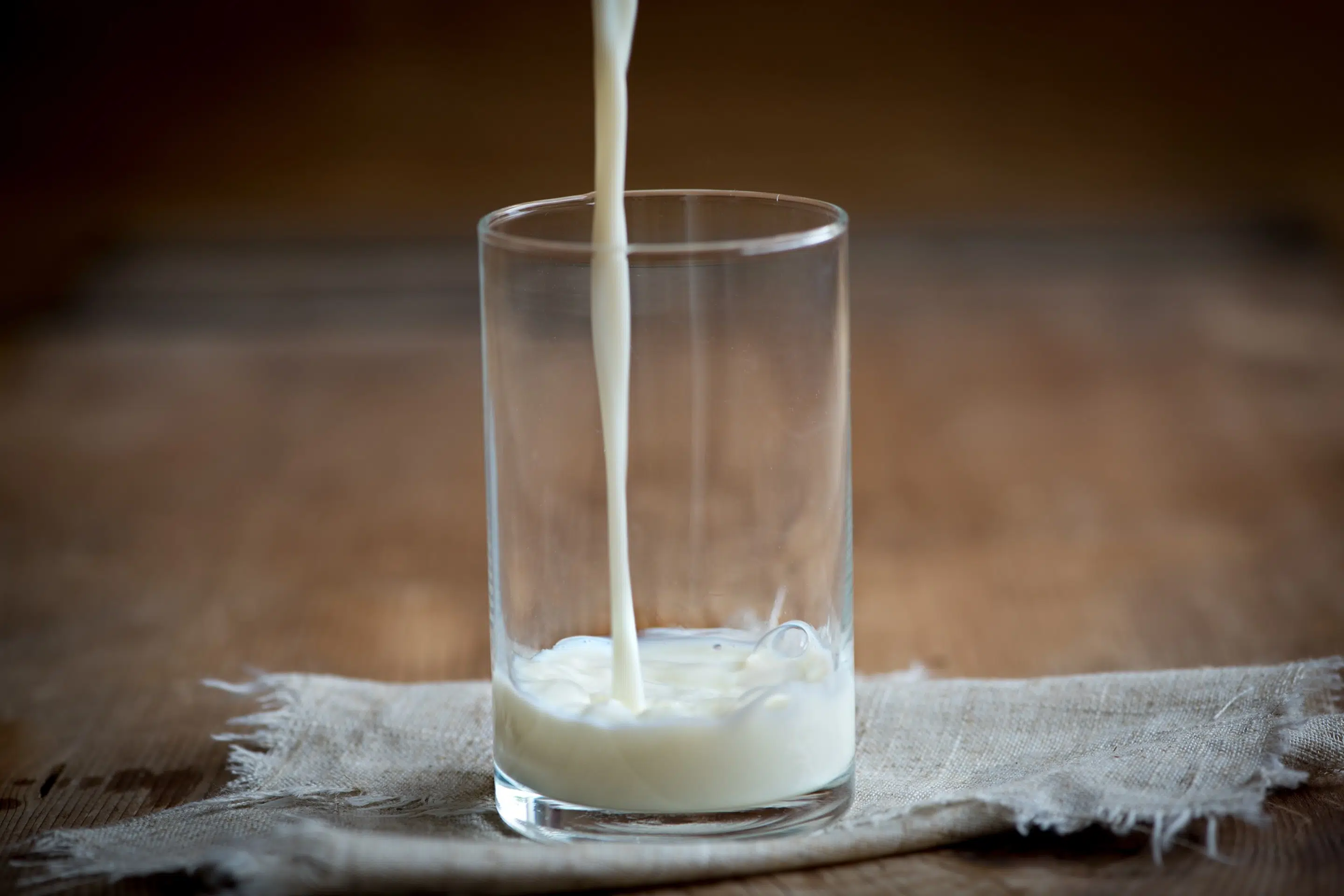Raw milk is dairy milk that has not been pasteurized or homogenized, meaning it has not undergone any processing to eliminate potential harmful bacteria or alter its natural state. It comes directly from the cow, goat, sheep, or other milk-producing animal and is consumed in its pure, unprocessed form.
In contrast to pasteurized milk, which is heated to high temperatures to kill harmful pathogens, raw milk retains its natural enzymes, beneficial bacteria, and nutrients. This unprocessed state is believed to offer numerous potential health benefits, particularly for gut health.
The consumption of raw milk has been a subject of ongoing debate, with proponents touting its nutritional advantages and opponents raising concerns about food safety. As we explore the connection between raw milk and gut health, it’s essential to approach the topic with an open mind and a critical eye.
The Benefits of Raw Milk for Gut Health
Raw milk is believed to contribute to a healthy gut microbiome due to its unique nutritional profile and the presence of beneficial bacteria. Proponents of raw milk consumption argue that it offers several potential benefits for gut health, including:
- Probiotics: Raw milk is a natural source of various probiotic strains, including Lactobacillus and Bifidobacterium species [1,2]. These beneficial bacteria can help maintain a balanced gut microbiome, support digestion, and potentially reduce the risk of certain digestive issues. However, it’s essential to note that the probiotic content of raw milk can vary depending on factors such as the animal’s diet, living conditions, and the handling and storage of the milk.
- Enzymes: Raw milk is rich in enzymes like lipase, which aids in the digestion of fats, and lactase, which helps break down lactose, the natural sugar found in milk [2]. These enzymes can support better nutrient absorption and potentially reduce lactose intolerance symptoms.
- Immunoglobulins: Raw milk contains immunoglobulins, which are antibodies that can help support a healthy immune system. These antibodies may contribute to the overall health of the gut by promoting a balanced immune response and potentially reducing inflammation.
- Conjugated Linoleic Acid (CLA): Raw milk is a natural source of CLA, a type of fatty acid believed to have anti-inflammatory properties. CLA may help reduce inflammation in the gut, which can contribute to better overall digestive health.
- Omega-3 Fatty Acids: Depending on the diet of the milk-producing animal, raw milk can be a good source of omega-3 fatty acids, which are known for their anti-inflammatory properties and potential benefits for gut health.
Exploring the Potential Risks of Raw Milk on Gut Health
While the potential benefits of raw milk for gut health are compelling, it is crucial to approach this topic with a balanced perspective. As with any food product, there are inherent risks associated with consuming raw milk that must be carefully considered.
- Pathogenic Contamination: Raw milk can harbor harmful bacteria, such as Salmonella, E. coli, and Listeria, which can cause foodborne illnesses if not handled and stored properly [2]. This risk is particularly concerning for individuals with compromised immune systems, pregnant women, and young children.
- Allergic Reactions: Some individuals may be sensitive or allergic to certain proteins present in raw milk, leading to adverse reactions like digestive discomfort, skin rashes, or respiratory issues [2].
- Lactose Intolerance: While raw milk contains lactase enzymes that aid in lactose digestion, individuals with severe lactose intolerance may still experience digestive distress when consuming raw milk [2].
It is essential to weigh these risks and benefits carefully and consult with healthcare professionals, especially for individuals with specific health conditions or compromised immune systems.
Raw Milk vs. Pasteurized Milk: Which is Better for Gut Health?
The debate between raw milk and pasteurized milk has been ongoing, with proponents on both sides passionately advocating for their respective choices. When it comes to gut health, the question of which option is better is not a straightforward one, as both raw and pasteurized milk offer unique advantages and potential drawbacks. We mention the advantages of raw milk above, so here are the main advantages of pasteurized milk.
Pasteurized Milk Advantages:
- Reduced Pathogen Risk: The pasteurization process eliminates harmful bacteria like Salmonella, E. coli, and Listeria, reducing the risk of foodborne illnesses.
- Longer Shelf Life: Pasteurized milk has a longer shelf life than raw milk, making it more convenient for storage and distribution.
- Consistency: The pasteurization process helps ensure a consistent product quality and flavor, as raw milk can vary based on factors like animal feed and environmental conditions.
Ultimately, the choice between raw milk and pasteurized milk for gut health depends on individual preferences, risk tolerance, and specific dietary needs. For individuals with compromised immune systems, pregnant women, and young children, pasteurized milk may be the safer option. However, for those seeking the potential benefits of live probiotics and enzymes, raw milk from reputable sources and handled with proper safety precautions could be a valuable addition to a gut-friendly diet.
How to Incorporate Raw Milk into your Diet for Gut Health
If you decide to incorporate raw milk into your diet for potential gut health benefits, it’s essential to do so responsibly and with proper precautions. Here are some tips:
- Source responsibly: Purchase raw milk from reputable, licensed, and certified sources that follow strict safety and hygiene protocols. Ensure the milk is from healthy, well-cared-for animals raised in clean environments.
- Start slowly: If you’re new to consuming raw milk, introduce it gradually into your diet to allow your body to adjust. Begin with small amounts and monitor for any adverse reactions.
- Proper storage: Raw milk should be stored properly at the recommended temperatures (ideally below 40°F or 4°C) and consumed within a few days of purchase to minimize the risk of bacterial growth.
- Combine with a balanced diet: While raw milk may offer potential gut health benefits, it should be consumed as part of a well-rounded, nutrient-dense diet rich in various fruits, vegetables, whole grains, and lean proteins.
- Consider fermentation: Fermented raw milk products like kefir, yogurt, and cheese may offer additional probiotic benefits while reducing the risk of harmful bacterial growth.
Safety Precautions when Consuming Raw Milk
If you choose to consume raw milk, it’s crucial to take appropriate safety precautions to minimize the risk of foodborne illnesses. Here are some essential guidelines:
- Source from reputable producers: Purchase raw milk from licensed and certified sources that follow strict safety protocols and regularly test their products for potential contaminants.
- Proper handling and storage: Raw milk should be kept refrigerated at or below 40°F (4°C) and consumed within a few days of purchase to minimize bacterial growth.
- Avoid consumption for high-risk groups: Individuals with weakened immune systems, pregnant women, young children, and older adults should avoid consuming raw milk due to the increased risk of severe foodborne illnesses.
- Consult with a healthcare professional: If you have any underlying health conditions or concerns, it’s essential to consult with a healthcare professional before consuming raw milk to ensure it’s safe for your specific circumstances.
- Follow food safety guidelines: Practice proper food handling and preparation techniques, including washing hands, utensils, and surfaces thoroughly, and avoiding cross-contamination with other foods.
Raw Milk Alternatives for Gut Health
If you’re hesitant about consuming raw milk due to potential risks or lack of access to high-quality sources, there are alternative options to support gut health:
- Pasteurized probiotic-rich dairy products: Many pasteurized dairy products, such as yogurt, kefir, and certain cheeses, are fortified with live probiotic cultures that can contribute to a healthy gut microbiome.
- Probiotic supplements: High-quality probiotic supplements can provide a concentrated dose of beneficial bacteria to support gut health. Consult with a healthcare professional for appropriate strains and dosages.
- Fermented foods: Incorporate fermented foods like sauerkraut, kimchi, and kombucha into your diet, as they naturally contain beneficial bacteria that can contribute to a healthy gut microbiome.
- Prebiotic-rich foods: Prebiotics are types of dietary fiber that feed the beneficial bacteria in the gut. Foods like onions, garlic, bananas, and whole grains are excellent sources of prebiotics and can support a healthy gut environment.
Final Thoughts
The debate surrounding raw milk and its potential benefits for gut health continues to be a topic of discussion among health professionals, researchers, and consumers alike. While raw milk may offer potential advantages due to its natural probiotic content, beneficial enzymes, and nutrient profile, it’s essential to weigh the potential risks and benefits carefully.
Ultimately, the decision to consume raw milk should be made on an individual basis, considering personal health status, risk tolerance, and access to high-quality, responsibly sourced raw milk. For those who choose to incorporate raw milk into their diet, it’s crucial to follow proper safety precautions and consult with healthcare professionals to ensure a balanced and well-informed approach.
Alternatively, pasteurized probiotic-rich dairy products, probiotic supplements, fermented foods, and prebiotic-rich foods can provide similar potential gut health benefits while minimizing the risks associated with consuming raw milk.
If you’re interested in exploring the potential benefits of raw milk for gut health, particularly individuals with specific health conditions or dietary restrictions, I encourage you to consult with a healthcare professional or a certified nutritionist. They can provide personalized guidance based on your individual circumstances and help you make an informed decision about incorporating raw milk into your diet safely and responsibly.
Sources
[1] Butler, M. I., Bastiaanssen, T. F. S., Long-Smith, C., Berding, K., Morkl, S., Cusack, A. M., Strain, C., Busca, K., Porteous-Allen, P., Claesson, M. J., Stanton, C., Cryan, J. F., Allen, D., & Dinan, T. G. (2020). Recipe for a Healthy Gut: Intake of Unpasteurised Milk Is Associated with Increased Lactobacillus Abundance in the Human Gut Microbiome. Nutrients, 12(5), 1468. https://doi.org/10.3390/nu12051468
[2] Lucey J. A. (2015). Raw Milk Consumption: Risks and Benefits. Nutrition today, 50(4), 189–193. https://doi.org/10.1097/NT.0000000000000108
https://rawfarmusa.com/blog/5-ways-drinking-raw-milk-can-improve-your-health
https://www.ucdavis.edu/food/news/raw-milk-may-do-more-harm-good
https://www.webmd.com/diet/raw-milk-health-benefits
https://www.rawmilkinstitute.org/updates/letter-to-medical-professionals-about-raw-milk
https://www.healthline.com/nutrition/drinking-raw-milk
https://www.cdc.gov/food-safety/foods/raw-milk.html
https://olis.oregonlegislature.gov/liz/2023R1/Downloads/PublicTestimonyDocument/42085








